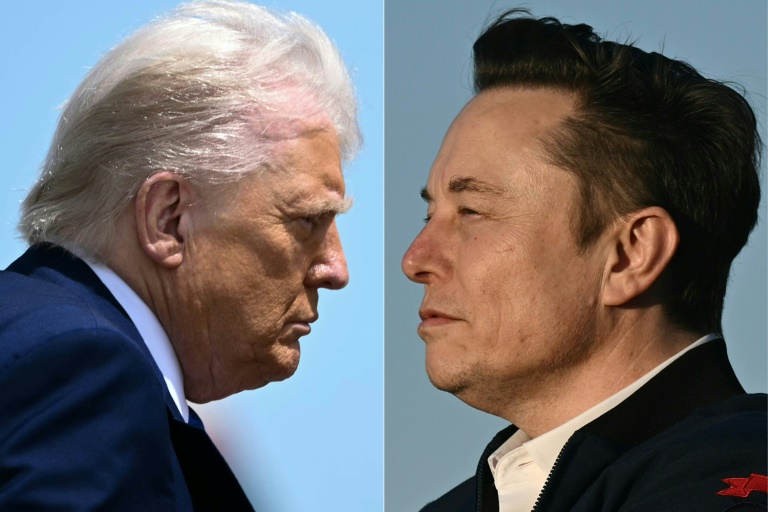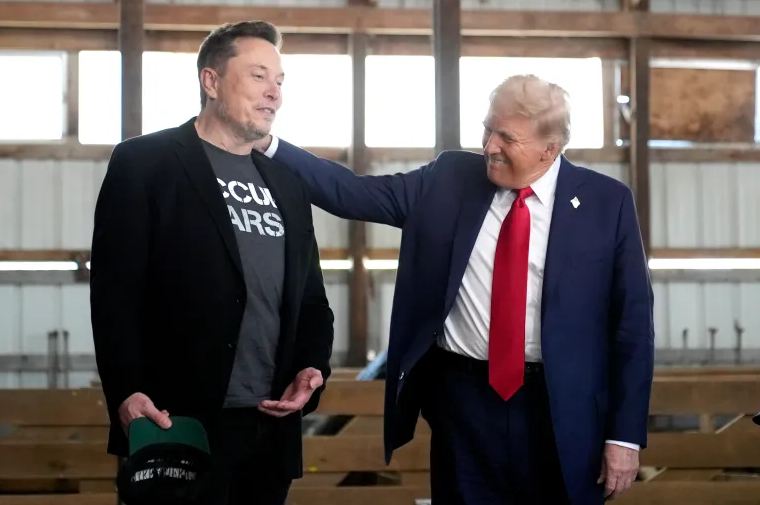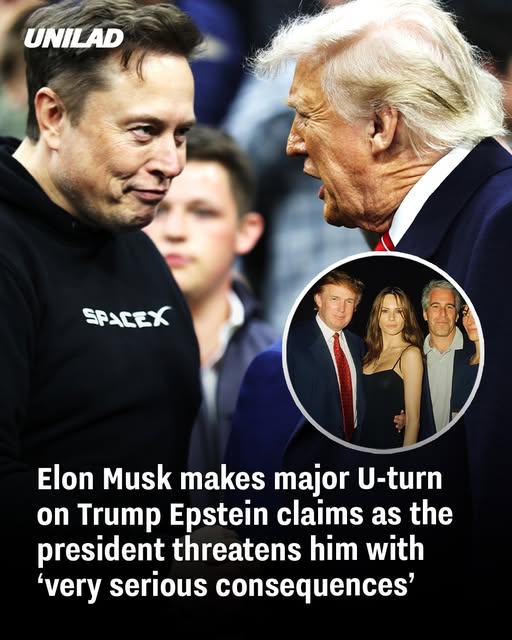A dramatic confrontation has erupted between billionaire Elon Musk and former U.S. President Donald Trump, fueled by a financial dispute over a sweeping Republican spending bill, and peaking with Musk’s explosive (and now-deleted) claim that Trump is named in undisclosed “Epstein files.”
Billion-Dollar Bill Backlash
Tensions began over Trump’s tax-and-spending proposal, dubbed the “One Big Beautiful Bill”, which proposes raising the national debt by around $4 trillion. Musk publicly slammed the plan, calling it a “disgusting abomination” that would balloon the deficit by an additional $3 trillion over the next decade—without key reforms like retaining electric vehicle subsidies.

Musk’s Political Pivot
Once an ally who backed Trump’s 2024 campaign and held a temporary advisory post, Musk is now openly pitting himself against Trump. He’s even floated a possible new political venture, tentatively dubbed “The America Party,” aimed at centrist voters.
The “Really Big Bomb” Claim
During the battle of tweets, Musk dropped a bombshell:
“@realDonaldTrump is in the Epstein files. That is the real reason they have not been made public.”
He provided no additional evidence and later deleted the post. The accusation echoes past scrutiny of Trump’s social connections with Jeffrey Epstein but stops short of alleging criminal activity.
Trump’s Counterattack
Trump responded by threatening severe repercussions, including dismantling government contracts with Musk’s companies—Tesla, SpaceX, and Starlink—if Musk financially supports Democratic campaigns during the upcoming 2026 midterms. He also attacked Musk’s sanity, saying:
“He’s gone CRAZY!”
Fallout Hits Markets
Investors reacted quickly. Tesla saw its stock plummet roughly 14%—erasing over $150 billion in market value in a single day—and shares of Trump Media & Technology also dropped.
Legal and Political Ripples
Democratic lawmakers are now calling for the Department of Justice to explain whether Trump’s name genuinely appears in the still-sealed Epstein files. Despite public ties to Epstein—shared events, flight logs, and contact book entries—no allegations of wrongdoing against Trump have emerged, and the White House insists Musk’s claim is unsubstantiated.
Broader Impacts in GOP and Beyond
Critics within the Republican Party are urging de-escalation, warning that this feud could fracture the party’s unity heading into midterms. Vice‑President JD Vance acknowledged Musk’s outburst but labelled him an “emotional guy,” while Steve Bannon suggested punitive actions including contract cancellations—and even deportation.
What Comes Next?
Epstein documents: The FBI is still preparing more releases, with Attorney-General Pam Bondi stating that thousands of pages are under review.
- Political consequences: A brewing tug-of-war over corporate influence and ideological alignment looms—could Musk’s shift help launch a new centrist third party?
- Corporate risks: Musk’s businesses now face heightened political vulnerability should Trump regain power and act on threats to revoke contracts.

Conclusion
What began as a policy disagreement over fiscal policy has escalated into an all-out clash of personalities. Elon Musk, once a Trump confidant, now challenges the former president with a stunning suggestion about Epstein documents. Donald Trump, in turn, threatens Musk’s empire on political grounds. The fallout—market losses, internal GOP concerns, and rising public pressure—signals this is more than a spat: it’s a pivotal moment defining influence, power, and transparency in American politics.

















